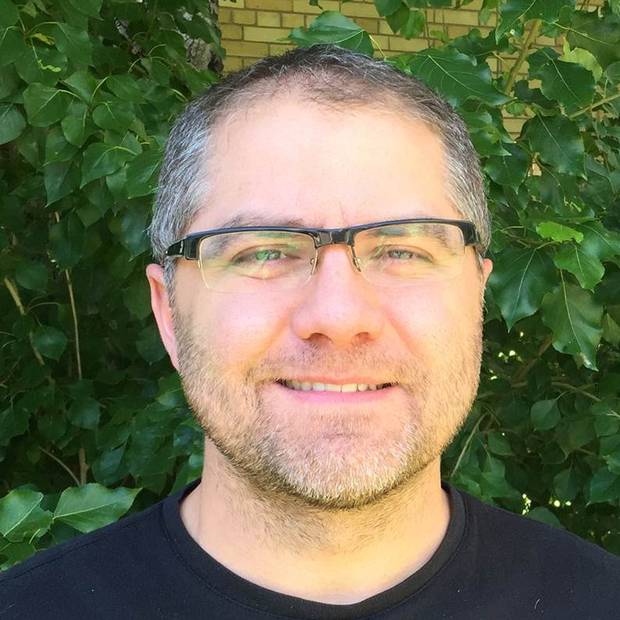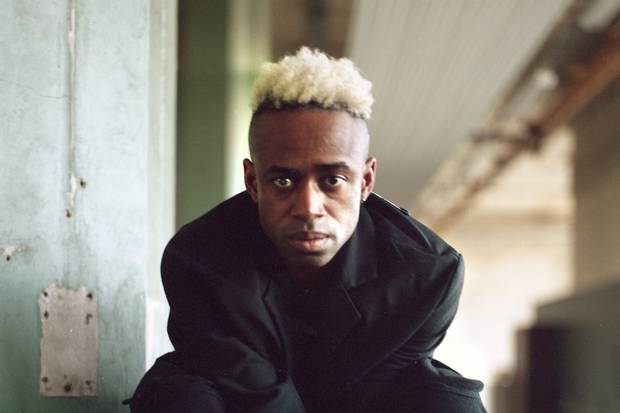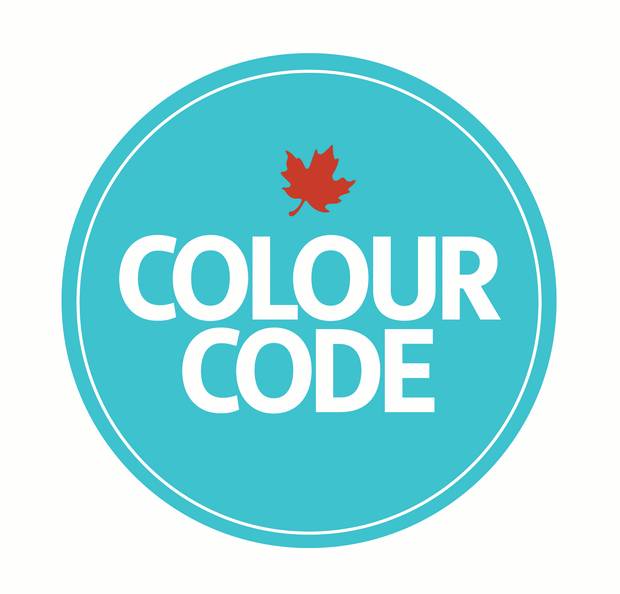A few months ago, my two-year-old came home singing a dirty song. It was Ten Little Indians.
It started off adorably, before I fully heard the words coming out of his cute little mouth. At first, I tried to wait it out, since he has a short attention span, and I dreaded bringing it up with his daycare provider. But when he continued to yodel away for weeks – and, worse, I occasionally found myself humming the dastardly catchy ditty – I realized I had to deal.
Google confirmed my suspicions: Yes, Ten Little Indians is racist. It's a mid-19th century American folk song and the original lyrics are about American Indians dying in various ways. At the end there are no Indians left.
My roly-poly baby was singing a song about genocide.
I gathered up my courage for the next drop-off. "Ummm, do you guys sing Ten Little Indians,?" I asked, faux-casually.
"What? No! What?," my daycare provider replied. I said that my kid had been singing the song and, well, I didn't want him to. She said she honestly didn't know where he had heard it. It was awkward, since we adore her, and I wasn't looking for a confrontation or to lay blame. Stupid racism, appearing out of nowhere to ruin circle time. We both left it at that, confused.
It's fitting that the Ten Little Indians incident played out this year. For most of 2016, I've been working on Colour Code, a podcast series about race in Canada. I knew from the start that it was an ambitious and controversial topic, but still, it's been tumultuous. I don't consider myself naive, and much of what I learned was still upsetting.
Such as: there are 13 categories of Indian Status, all of them basically designed to reduce the number of people with Indian Status. People of African descent were kept out of "white" schools in Nova Scotia and Ontario up until the mid-20th century. Scholars of Chinese-Canadian history can trace the roots of anti-foreign sentiment in Vancouver's real estate market back 200 years. And many lovely, smart and interesting people from all across the country have painful stories to tell.
Making the whole thing more difficult is that, on more than one occasion, my co-host Hannah Sung and I have been accused of looking for trouble where none exists. We've been told we are the ones inflaming racial tensions in a country known internationally for its peaceful multiculturalism and harmony. It's disconcerting to take a daily dive into dark truths and then resurface to denials and derision.
Which isn't to say most Canadians refute reality. As part of the Colour Code project, The Globe commissioned a national survey by Nanos Research on how citizens of this country perceive our attitudes to race and racism. Probably the most striking result is that the vast majority of Canadians feel that there is "a lot" of racism here: 69 per cent of us, coast to coast, with a high of 75 per cent in Atlantic Canada and low of 60 per cent in Quebec.
The effects are corrosive. Racism leads to poor health, violence, and poverty. Only 15 per cent of Canadians believe that "racial minorities have the exact same work opportunities as all Canadians," and sadly, they're wrong. Racialized families are three times as likely to live in poverty than white Canadians, even though 44 per cent of racialized people in Canada have a university degree, compared to 25 per cent of everyone else.
Canadians know that racism is here, and we know we're all implicated.
Thirty-five per cent of respondents said they'd probably said something an observer might consider racist.
Confronting race in Canada is about reconciling the fact that Islamophobic attacks are on the rise at the same time that Syrian refugees are being welcomed. It's about understanding the underpinnings of the crisis of murdered and missing indigenous women as the federal government launches a national inquiry. It's about fully considering the recent deaths of Abdirahman Abdi, who died in police custody in Ottawa, and Coulten Boushie, shot by a farmer outside Saskatoon. And it's about taking stock of Canada's mythical multiculturalism in an age of global distrust of migration.
Back to the song saga: Later that day, my daycare provider sent me a photo of a children's CD. Out of at least 30 songs, my kid had fixated on the worst one. She immediately trashed it and apologized about 14 times. He eventually accepted that "that isn't a nice song" and the whole soap opera is over.
Or at least it is for us. Indigenous people reading this might be rightfully infuriated, or exhausted: that my daycare provider didn't register anything other than chirpy background noise or that I initially avoided the issue and then didn't fully explain the "not niceness" to my little one. Which brings me to issues of privilege, another term that many object to.
I am, quite frankly, ashamed that it took me so long to begin to recognize the scope of anti-indigenous racism in this country. And sometimes that shame – and the hugeness of all I don't know – feels overwhelming. It puts me on the defensive. I went to public school here, after all: Is it my fault that I don't know these things, or that of the system that didn't teach it to me?
The thing is, that doesn't matter. What matters is that I'm an adult now, with adult responsibilities.
Attempting to sidestep issues of race and racism in Canada isn't reality. It's simply a coping method, and rather a cowardly one. As the Ten Little Indians incident shows, tracking down the source of the infection might be tricky, but there's no denying that the sickness exists.
What you'll hear:

Handout
Naila Keleta-Mae from episode "2 Legit"
The notion of who’s responsible for fixing racism is really askew. Like that is bananas that we expect people to not only experience it but then also do all this advocacy and speak up in the midst of having that horrible experience
Chris Bolin/For The Globe and Mail
Naheed Nenshi from episode "The Most Visible Minority"
Islamophobia is difficult because it’s also personal. That’s why, during the last federal election, some people say I swam out of my lane, but I had to speak out on the right for people of every faith to be able to have all the access to all the rights and opportunities of being a Canadian citizen.
Handout
Mohammed Hashim from episode "The Angel Complex"
The Barbaric Cultural Practices Act felt like a punch in the gut….Within the next four days I spoke to about 26 women who had been either attacked or pushed or screamed at from the time of that announcement. I honestly felt that Canada didn’t want me. And I was born here.
Handout
Celeste Yim from episode "2 Legit"
When people are like ‘oh, you’re so whitewashed,’ that feels so unfair. You’ve asked me, World, to be as white as I can be. And then to call me out on that because it’s not something that I’m able to fully become is so frustrating..

Handout
Damien Lee from episode "Race Card"
There’s no love in blood quantum. It’s a pseudo-science that measures an indigenous person’s supposed authenticity compared to a very ancient idea of what counts as an Indian … I have zero-per-cent Indian blood. But I claim my family and I claim my community and more importantly, I’m also claimed back.
Tom Sandler/For The Globe and Mail
Cameron Bailey from episode "The Most Visible Minority"
The thing that I have the least patience with is people who are unwilling to talk about things like race or gender because it makes them uncomfortable. I feel like you’ve got to get over that.

Handout
Fritz Helder from episode "The Only One"
I never felt “Other,” because Whitehorse is a community of very multicultural people. There's so many Native Americans, I feel like everyone else is a minority there.
Handout
Akio Maroon from episode "The Angel Complex"
Because of Canada’s immigrant culture and history of bringing immigrants here, we get complacent with our gratitude and that is dangerous. We almost say it’s ok that we’re being treated this way because we have opportunity to be here and it’s not war torn....
Introducing Colour Code: A podcast about race in Canada
Today, The Globe and Mail launches a new podcast series, Colour Code. The subject is race in Canada and the hosts are video producer Hannah Sung and columnist Denise Balkissoon.
It's been a while since The Globe had a podcast, so it's fitting that our first venture back into the medium is a topic that's both controversial and personal. In the past year, developments around the globe have increasingly pushed issues of race and racism into the glare of the spotlight. At the same time, the appetite for personal narratives has never been greater.
Our goal with Colour Code is to show how issues of race and identity affect individual Canadians and are woven through every current affairs story that matters. A podcast is the ideal format: It's an intimate medium that's best experienced alone, wearing headphones, committed to listening, learning and thinking. New episodes will be released on Tuesdays, along with related written pieces online and in the newspaper.
The first episode, debuting today, is called Race Card. It's about Indian Status, which is made tangible with an actual government-issue identification card. Listeners will meet two Anishinaabe people who live in Ontario: Stephanie Pangowish, who has status but wishes she had learned more about traditional music and dancing as a child, and Damien Lee, an adoptee who grew up steeped in his culture but has been denied status and band membership numerous times.
Next week, in The Most Visible Minority, Calgary mayor Naheed Nenshi and Cameron Bailey, artistic director of the Toronto International Film Festival, will discuss what it means to be a high-profile person of colour in the country today. After that, on Sept. 20, the episode First Comes Love will explore the experiences of mixed-race families through the eyes of the Martin family from Markham, Ontario.
As the fall unfolds, the show will discuss the country's hidden histories: not just of racism, but of civil rights activism that has benefited us all. It will also examine how the Canadian view of race relations is affected by our neighbour, the United States, and what it's like to be the only non-white family in a small prairie town.
We'll also be addressing the very words and language used to discuss race in this country. That's important because Canadians don't like to talk about race. It's personal, and we're polite. Denise and Hannah will start the awkward conversation, but they want you to continue it – please let us know your thoughts at colourcode@globeandmail.com.
Editor's note: An earlier version of this story incorrectly stated that Abdirahman Abdi was shot by police. Mr. Abdi died while in police custody.
